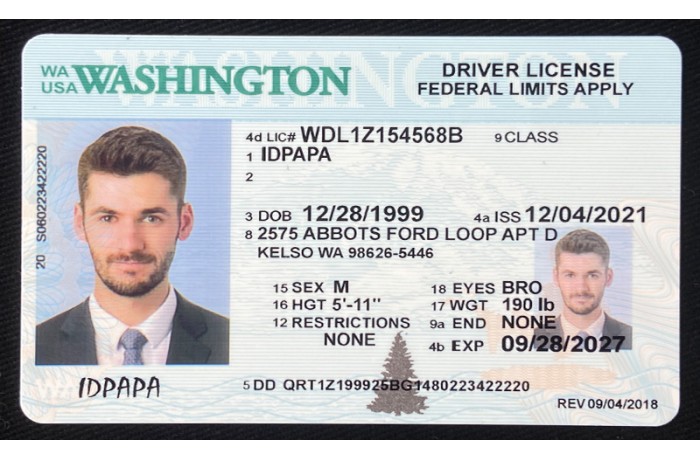In today's increasingly virtual world, protecting your digital identity is paramount. ID fraud presents a growing threat, with fraudsters constantly trying to steal sensitive information for malicious purposes.
Here's outline some essential steps you can take to avoid the risk of becoming a victim of ID fraud:
* **Robust Passwords:**
Create unique and strong passwords for each website you use. Avoid common copyright, phrases, or easily predictable information.
* **Multi-Factor Authentication (MFA):**
Turn on MFA whenever possible. This adds an extra layer of defense by requiring a second form of verification, such as a email.
* **Regularly Update Software:**
Keep your operating system and software up to date. Security fixes often address vulnerabilities that could be exploited data breaches.
* **Be Wary of Phishing Attempts:**
Carefully review emails, texts, and phone calls from unknown sources. Don't click on links or open files unless you are certain they are legitimate.
* **Monitor Your Accounts Regularly:**
Inspect your bank statements, credit card bills, and other financial documents Legal ID requirements periodically. Look for any unauthorized transactions or suspicious activity.
By following these guidelines, you can effectively reduce the risk of falling victim to ID fraud and preserve your digital identity.
Delving into Deception: copyright Laws and Consequences
The allure of a copyright might seem tempting, a gateway to underage drinking or restricted access. However, the reality is far more detrimental. copyright laws are strictly enforced across jurisdictions, and the consequences of possession or use can be grave.
Penalties for copyright offenses vary widely depending on factors such as location. They can range from revocation of driving privileges to more severe punishments for repeat offenders.
- Comprehending the intricacies of copyright laws is crucial to mitigating potential legal trouble. It's important to be aware about the specific regulations in your jurisdiction.
- Legal experts can provide valuable guidance and elucidate any confusions regarding copyright laws.
Ultimately, the risks associated with a copyright far outweigh any perceived benefits. Choosing legal alternatives is essential to ensure your well-being.
Next-Gen ID Verification: The Biometric Revolution
Biometric authentication is rapidly evolving into the leading method for confirming identity. Leveraging unique physical traits, such as fingerprints, iris scans, and facial recognition, biometric systems offer a higher level of level of protection compared to traditional methods like passwords and PINs.
As technology advances, biometric applications are becoming more accessible, integrating into daily life. This trend is driven by the need for reliable identity assurance in a world increasingly reliant on digital interactions.
The future of identity verification lies certainly in this technology. They offer a user-friendly experience while providing exceptional security.
Elevating Trust Through Technology: Advanced Identity Verification Solutions
In today's increasingly digital realm, safeguarding user trust is paramount. Robust identity verification solutions are emerging as a vital tool to combat fraud, enhance security, and foster confidence in online interactions. By leveraging cutting-edge technologies such as biometrics, artificial intelligence, and blockchain, these systems provide a multi-layered approach to confirm user identities with unprecedented accuracy and reliability.
This shift towards rigorous identity verification not only prevents the risks associated with fraudulent activities but also creates a more secure and transparent online experience for both individuals and organizations. As technology continues to evolve, we can expect even more innovative solutions that will further elevate trust in the digital world.
Mitigating ID Theft in the Digital Age: Strategies for Individuals and Businesses
In today's interconnected world, identity theft poses a significant threat to both individuals and businesses. As our lives become increasingly digitized, criminals are finding novel ways to exploit vulnerabilities and steal personal information. To effectively mitigate this growing problem, a multifaceted approach is required, encompassing comprehensive security measures and heightened vigilance among individuals and organizations.
Individuals can take several proactive steps to safeguard themselves from identity theft. These include:
* **Creating strong, unique passwords** for each online account and enabling two-factor authentication whenever possible.
* **Regularly monitoring credit reports** for suspicious activity and quickly reporting any irregularities to credit bureaus.
* **Being cautious about sharing personal information** online or over the phone, and verifying the legitimacy of websites before providing sensitive data.
Businesses also have a critical role to play in preventing identity theft. This involves implementing rigorous security measures such as:
* Encrypting customer data both in transit and at rest.
* Conducting regular security audits to identify vulnerabilities.
* Training employees on best practices for data security.
By adopting a proactive and collaborative approach, individuals and businesses can work together to minimize the risk of identity theft and create a more secure digital environment.
Unlocking the Future: Biometric Authentication for Enhanced Security
In an era where data breaches are becoming increasingly common, traditional passwords are proving inadequate. Hackers constantly find new ways to circumvent weak authentication methods, putting sensitive information at risk. Thankfully, innovative biometrics offer a compelling solution, enhancing both security and convenience for users. Voice Recognition technology allows individuals to authenticate their identity using unique biological traits, creating a robust barrier against unauthorized access. Biometric systems are inherently more secure than passwords because they cannot be easily copied or stolen.
- Moreover, biometrics offer a seamless user experience. Individuals no longer need to remember complex passwords or worry about forgetting them. Simply by providing a fingerprint scan, voice sample, or facial recognition, access can be granted effortlessly.
- Such shift towards biometric authentication has the potential to revolutionize various sectors, such as finance and healthcare to government and retail.
Consequently, businesses can leverage biometrics to protect valuable data, reduce fraud, and enhance customer trust.
